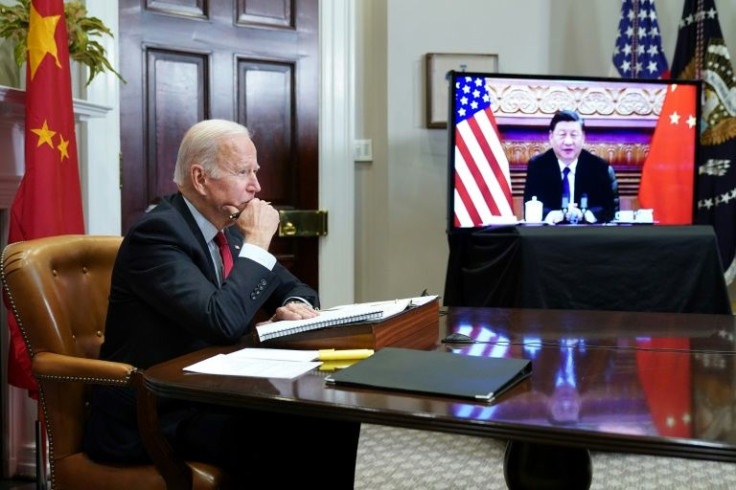Russia-Ukraine War: What's In It For China?

The Russia-Ukraine war has brought Russia and China, two old adversaries, closer. But that may not be a good thing for Beijing in the end.
China's relations with Russia are currently the most strategic asset for Beijing, which Washington cannot destroy by drawing a "wedge" between Moscow and Beijing over the Russia Ukraine war, according to a Global Times editorial posted over the weekend.
"The close relationship between China and Russia has been a thorn in the US side, especially against the backdrop of the ongoing Ukraine crisis," the editorial asserts. "With the simmering of the situation, it couldn't be any clearer that Washington is eager to exploit the Russia-Ukraine conflict to drive a wedge between Beijing and Moscow. "
The editorial lists several occasions that Washington has asked Beijing to put pressure on Moscow to end its invasion of Ukraine. Meanwhile, Washington has warned Beijing that it will "impose costs" for any support China offers to Russia's actions against Ukraine.
"If China really pressures Russia in a way that is inconsistent with the China-Russia comprehensive strategic partnership of coordination, it will only undermine the China-Russia relationship and sabotage mutual trust, which will be a huge strategic loss to both sides," the editorial added. "This is what the U.S. is eager and happy to see."
What makes relations between Russia and China a strategic asset for Beijing? What's China to gain from the Russia-Ukraine war?
"Over much of their common history, both China and Russia have considered each other as adversaries, says Juscelino Colares. a professor of business law and co-director of the Frederick K. Cox International Law Center.
"A Russian victory and domination of Ukraine would see a resurgent Russia challenge Chinese power in the Eurasian landmass, particularly as Russia would continue controlling massive hydrocarbon resources (including in Kazakhstan) while boosting agricultural prowess by controlling Ukraine as an export breadbasket."
Simply put, a Russian victory in Ukraine will be a bad thing for China.
Still, Colares doesn't think such a scenario will push the two countries back to their rival tendencies and not cooperate for a couple of reasons.
"First, even with Russia emerging as a victor, China would gain much from a mildly resurgent, heavily sanctioned partner that sells exactly what China needs most: fossil fuels (of which China can only source 20% domestically) and agricultural commodities, which would free China from U.S. and Australian agricultural imports, resulting in taking yet more leverage away from the Quad," he explains.
"Second, under Western sanctions, Russia would become a docile partner, particularly if it knows China can turn to Iran and Saudi Arabia, and to Argentina, Brazil, and New Zealand for energy and foodstuffs, respectively."
In short, China stands to gain a great deal from a Russian victory in Ukraine, provided that U.S.-E.U. sanctions have weakened Russia's economy. And it has to gain even more if the war drags on and Russia is willing to accept China's "price" for any assistance, according to Colares.
"This might explain why, earlier, China might have encouraged Putin's plans for an invasion only to stop short of a full endorsement, presumably counting on seeing the cost of this war rise to Putin," he said.
Still, Yannis Tsinas, a former Washington military diplomat analyst, thinks this outcome will be bad for China. "Russia will be unable to build strong economic and political ties with other countries of the European Union, or China for that matter," he says. "Thus, the United States will have only one major opponent to face in the grand scheme of global politics – China!"
Simply put, China may be the big loser rather than a big gainer of a prolonged Russian-Ukraine war.
© Copyright IBTimes 2025. All rights reserved.






















